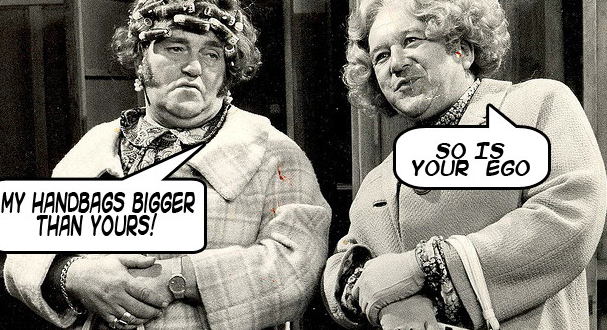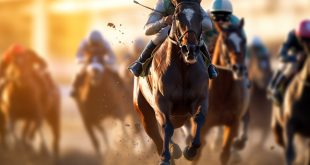The betting and gaming industry has, undoubtedly, been tested when it comes to mitigating the impact of the coronavirus crisis both for its stakeholders and players.
Regulus Partners begins the week by looking at the new guidance for operators issued by the UK Gambling Commission, the ban on advertising from BGC members and the pending return of UK horse racing next month.
______________
UK: regulation – Commission responds to Covid crisis as three people spend more on online bingo
The Gambling Commission this week provided a neat little cameo that captured its changing approach to regulation, as it published revised guidance to operators underpinned by survey results from YouGov on gambling under lockdown.
While the revised guidance trumpeted six changes, only one – a ban (until further notice) on reverse withdrawals – seems substantial. The rest seemed rather vague and served only to highlight their prior absence. As with the BGC’s ‘ten pledges’ in March, there was a sense that the regulator was attempting to convey more than was actually there.
The lightness of the intervention was at least matched by the slightness of the research. The Commission’s press release rightly observed that there was “no evidence to suggest an increase in problem gambling”. The survey equally provided no insight into life on Mars or whether Elvis was alive as a woman, feasting on Freddie Starr’s hamster in a World War Two bomber on the moon. This is because its six questions were not designed to elicit such information.
We did learn, however that (contrary to some rather alarming headlines of late) most people in Britain have not spent lockdown furiously punting; and on balance, those who do enjoy a bet have been doing rather less of it (we are blogging on the vexed subject of substitution on Monday). All of this must have been something of a let-down to those demanding that ‘something must be done’.
Fortunately however, it was spotted that around two-thirds of “engaged gamblers” (i.e. those who participated in three or more activities) were spending more time and/or money gambling during the first four weeks of lockdown than they were doing before.
Here at last was the ‘smoking gun’ – but where exactly was it? The critical finding (upon which regulatory intervention was justified) that 64% of engaged gamblers were gambling more was not actually included in the published survey results. Licensees were thus required to take the matter on trust (a strictly rationed commodity these days).
The results did reveal that 8.5% of engaged gamblers had spent more money on slots-style games; 4.4% had spent more money on online casino products; and 3.5% had done so on remote bingo. Interestingly, they seemed to suggest that where increases occurred, they were fairly product-specific (i.e. so far as we can tell, engaged gamblers do not appear to be spending more time and money across a range of products).
Quite how worried we should be about adult consumers doing a little bit more of something that they enjoy is open to question; but if it is a problem then the major issues seem to be related to National Lottery instant win games (14.9% of engaged gamblers increased spending), National Lottery draws (12.4%) and private betting with friends and family (13.0%).
Then there is the fact that there were just 81 “engaged gamblers” in the survey sample. Of these, a mere seven stated that they had spent more money on online slots, four had played online casino more and just three had increased gambling on remote bingo. This hardly seems like a particularly robust basis for regulatory decision-making and smacks just a little of policy-based evidence-making.
Finally, the linkage of the survey results to the revised regulatory guidance seems unclear. In what way is a ban on reverse withdrawals a rational response to increased play of National Lottery products? It is questionable how problematic reverse withdrawal options are anyway – as the Commission itself demonstrates on a regular basis, people ought to be allowed to change their minds.
The real issue may be the way that some operators have used the facility to undermine attempts by potentially vulnerable customers to take a break or quit gambling. As with many issues (e.g. advertising), the real question is whether operators can be trusted to behave ethically. Where the industry shows itself incapable of using its freedoms responsibly, those freedoms are likely – and quite reasonably – to be withdrawn.
The Commission will shortly open a public consultation on structural features of gambling products, including reverse withdrawals. Given the temporary ban, the exam question may now be whether to allow them back. The change does at least provide operators with an opportunity to assess the effect of a ban (both in terms of harm prevention and consumer inconvenience) and to make the case for a more scientific approach to future re-regulation: rigorous and apolitical evaluation would be the right response.
UK: advertising – Hoisted Part II
The kerfuffle over gambling advertising this week has once again revealed the gambling industry’s ability to turn a positive into a negative. The decision by many operators to adopt a more socially responsible approach to advertising (promoting moderation and the use of play-management tools) was long overdue and (with some notable exceptions such as Sky Betting and Gaming, now part of Flutter) ought not to have taken a national emergency to arrive at. It seems therefore a great shame that what ought to have been a positive development has instead been painted as an act of cynicism.
This is because – as admirable as the new adverts are – they do not match the promise of a ban on broadcast advertising promised by the Betting and Gaming Council last month. An advert promoting ‘responsible consumption’ of a product is still an advert for the product; trumpeting its virtue simply highlights previous short-comings (especially given the volume and the branding).
As we have written before, credit should be given where operators raise standards – but active attempts to seek credit are best avoided. This latest episode of key parts (but not all) of the industry co-ordinating to over-promise and under-deliver potentially threatens the future prospects of gambling advertising (and being seen as a credible witness more generally) if not handled with more care quickly. Petards away…
UK: horse racing – racing ahead?
The government has expressed enthusiasm for English football to restart in June and even offered guidance and the support of their medical experts to make it happen. They also ask that some of the matches must be made available to watch for free at home. This perhaps signals recognition of the public’s over-familiarity with every detail of their four living room walls and a desire for distraction, a need for live sporting entertainment, a jolt of feel-good and maybe a good way of keeping people indoors. Crucially, given the number of matches not typically aired, everyone can win if well coordinated (fans, broadcasters, rightsholders, clubs).
1 June is now the likely (but not quite certain) date for non-contact sport to resume (without spectators). This includes football, tennis (albeit with a number of international travel and governance issues), golf and cricket – and British horseracing is also ready.
In line with the spread of Covid, mainland Europe has been three weeks or so ahead of this. Germany restarted on 7 May, though in a pretty low-key manner. France however got going on 11 May with a flurry of Pattern races. French racing fits well into the Anglo-Irish offer and so is an attractive product to starved punters in several key racing jurisdictions: every tipster became a French racing ‘expert’, every punter an aficionado.
What GB racing fans crave is, of course, a resumption here (it is not 80-85% of racing revenue on volume of events but on the attractiveness of those events to a domestic audience). In framing a schedule for the first eight days, the BHA has offered a glimpse of what might be: 18 meetings in that period on seven courses.
Of the 149 races proposed, 96 are handicaps. It is likely that as much as bettors are straining at the leash for ‘proper sport’, owners and trainers will have willing and ready horses to populate these races. There is a high likelihood of competitive, enjoyable, turnover-friendly racing, therefore – which is just the start needed.
For the lovers of quality racing the calendar is mouth-watering. The third day sees the first Group race at Kempton, Friday’s meeting at Newmarket is high-quality with Group races redirected there from Epsom and other courses and the weekend showcases the first two Classics of the season. If live, free-to-air football can be offered then it is to be hoped that much, or all, of this exciting first eight days can be shown to every household too. There is an opportunity for racing to shine here and to provide entertainment to a needy public.
The Irish restart was slated for 29 June, but just today that has been brought forward to 8 June. Many in the industry were certain that the earlier date was achievable, but the government there insisted that health measures around distancing, contact tracing and numbers on duty at the track must be adhered to. Some in parliament though argued that HRI had strengthened protocols to ensure safe racing and they have won the day.
With football, the UK government is pressing for funds from the top-tier to trickle down to lower leagues, to those whose need is great because of cessation and lockdown. The BHA’s plan is similar. Funding from the Levy Board is to be cut by up to 50% (in the case of Group 1 races) for the first 10 weeks. This news seems to have been well received in racing circles and if it is not a complete cure for grassroots participants, then a very welcome boost.
More broadly, racing after lockdown provides a critical period to experiment. The racing programme prior to Covid-19 was working just well enough to keep most stakeholders in a job and to continue to leverage money from betting (more from politics than productivity). However, it was not working well enough to drive horseracing betting revenue growth, upon which a large proportion of industry revenue is dependent, or to broaden the base of racehorse ownership (upon which the sport is dependent).
If racing reverts to its ‘old normal’, then the weaknesses inherent in the system, when combined with the additional likely weaknesses in the LBO network still important for funding, is likely to tip comfortable inertia into structural decline, in our view. On the other hand, if the new normal is properly evaluated and embraced, then racing may just come out of this crisis stronger. All racing needs to do is to leave assumption and self-interest aside and see the bigger picture – what could possibly go wrong…
________
Content provided by










